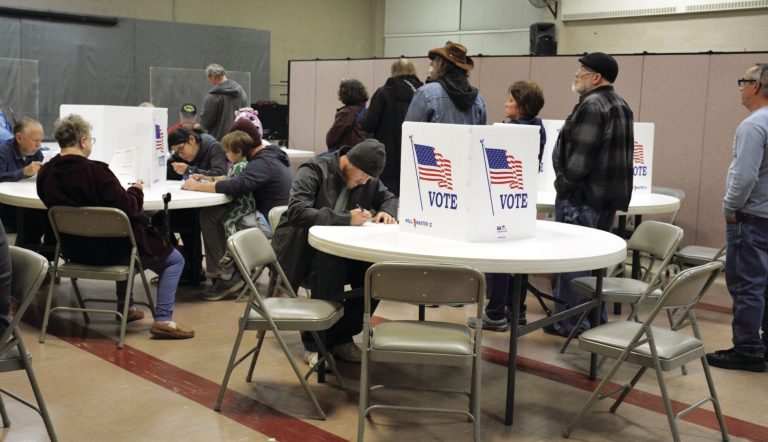By Amanda Lubinski
ALubinski@cherryroad.com
In addition to deciding whether to raise the state’s minimum wage, reverse the abortion ban, legalize sports betting and add a casino in Lake of the Ozarks, Missouri voters will also decide on the November ballot if elections in the state should be modified.
What’s in Amendment 7
Amendment 7’s ballot language asks voters if the “Missouri Constitution shall be amended to: make the Constitution consistent with state law by only allowing citizens of the United States to vote; prohibit the ranking of candidates by limiting voters to a single vote per candidate or issue; and require the plurality winner of a political party primary to be the single candidate at a general election?”
If passed, Missouri would ban ranked-choice voting everywhere but in St. Louis, which uses a similar system called approval voting and is the only municipality in the state that uses a form of ranked-choice voting. Ranked-choice voting allows voters to rank candidates in order of preference instead of choosing one winner. Under ranked-choice voting, candidates must receive more than 50% of the votes to win. If a race has multiple candidates and none of them receives more than 50% of the votes, an instant runoff occurs by election leaders where they eliminate the candidate with the fewest votes then use rankings from voters for the candidates remaining.
Amendment 7 would also confirm that non-citizens cannot cast ballots in state elections and that elections can only be carried out by paper ballot or “any mechanical method prescribed by law.”
A “no” vote opposes these changes to the state’s constitution. If Amendment 7 fails, no changes would be immediately made to the way elections are run in the state, but it could allow for local and state leaders to introduce ranked-choice voting measures in the future.
Those for and those against
State leaders who support Amendment 7 include Lt. Gov. Mike Kehoe, who is running for governor as the Republican candidate; Attorney Gen. Andrew Bailey, who is running for re-election; and state Treasurer Vivek Malek, who is also running for re-election. Local candidates running for state House and Senate seats in the November election who told the Courier-Tribune they would vote in favor of Amendment 7 include Mike Jones, a Republican running for House District 15; Republican Jerry Nolte, running for Senate District 17; and Republican Chris Lonsdale, running for re-election in District 38.
“I support Amendment 7. Non-citizens should not vote,” Nolte said. “Ranked-choice voting can be confusing, causing less confidence in election results.”
House Rep. Bill Allen, who is running for re-election in District 17, said he doesn’t like ranked-choice voting because “I prefer to focus on more bipartisan issues,” but added “I respect whatever voters decide.”
Local candidates running for state House and Senate seats who said they will vote against Amendment 7, meaning they do not want to ban possible ranked-choice voting, include Shirley Mata, Democrat running for state House District 17.
“Ranked-choice voting would be incredible for Missouri because it would likely elevate the voices of third-party candidates and bring more representation to the Capitol building. We need Libertarian and third-party candidates in Jefferson City,” Mata said.
Other state candidates who will vote against Amendment 7 include Democrat Gloria Young, running in House District 16; Democrat Marty Jacobs, running in House District 38; Democrat Ken Jamison, running in House District 15; Democrat Maggie Nurrenbern, running in Senate District 17 and Democrat Jim Bates, running in Senate District 21.
“I support the strong state and federal laws that already make it illegal for non-citizens to vote as these laws safeguard our democracy. Repeating these existing laws in a ballot measure only serves to confuse voters,” said Nurrenbern. “Meanwhile, I support rank-choice voting to ensure winning candidates are elected with majority support.”




